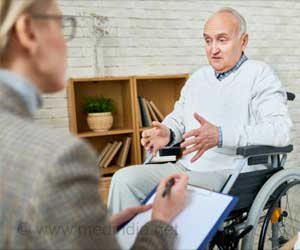Researchers at the Medical College of Georgia are studying a device designed to detect and stop seizures. The device is under study at MCG and is a small tool
Researchers at the Medical College of Georgia are studying a device designed to detect and stop seizures. The device is under study at MCG and is a small tool implanted in the skull that detects oncoming seizures, and then delivers a brief electrical stimulus to the brain to stop them.
MCG is among 28 U.S. centres participating in a study to determine if the neurostimulator device can help patients whose seizures are not well controlled by drugs.“The device constantly monitors electrical activity of the brain, gets accustomed to what is normal for that patient and, when it detects activity that is abnormal, within a few milliseconds, sends out a small electrical stimulus to stop it,” says Dr. Yong Park, MCG pediatric epileptologist and a principal investigator.
At MCG Medical Center, the RNS™ System, developed by California-based medical device manufacturer NeuroPace, will be used in about 10 patients aged 18-70, who have failed to get their seizures controlled with at least two medications.
Participants have a device implanted in the skull, with up to two wires containing electrodes placed near the seizure focus. A modified laptop computer looks at electrical activity picked up by the neurostimulator, then is used to program the device to recognize a patient’s seizure activity. Physicians can continue to fine-tune the detection and stimulation patterns.
During the first month after implant, the RNS™ is set for detection only while doctors design a set of parameters that allow it to reliably detect the onset of seizure activity, says Dr. Patty Ray, study coordinator. After one month, half of the patients are set for detection and responsive stimulation, the other half continue with detection only. After four months, all devices are set for detection and responsive stimulation throughout the remainder of the two-year study. After the study, patients will be eligible for a study to continue to use the device until it receives FDA approval, Dr. Ray says.
Participants remain on anti-seizure medication throughout the study, although Dr. Park suspects some patients may eventually be weaned off drugs. During this study, researchers also are collecting data on which drugs work best with the neurostimulator.
Advertisement
Early evidence indicates the RNS™ device might be most effective for foci in the medial temporal lobe, an area deep inside the brain involved in memory, where surgery is not an option, he says.
Source-ANI
LIN/J






